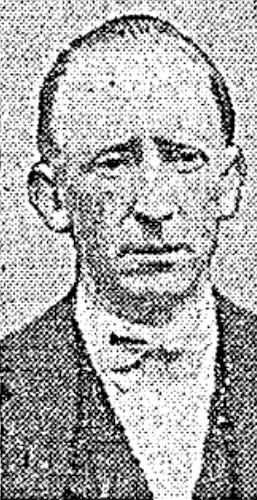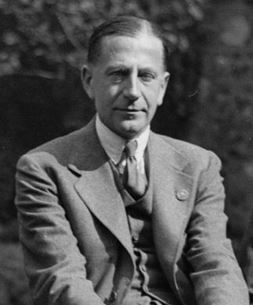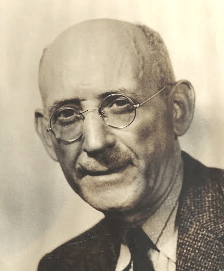Related Research Articles

William Thomas Cosgrave was an Irish politician who served as the President of the Executive Council of the Irish Free State from 1922 to 1932, Leader of the Opposition from 1932 to 1944, Leader of Fine Gael from 1934 to 1944, founder and leader of Cumann na nGaedheal, from 1923 to 1933, Chairman of the Provisional Government from August 1922 to December 1922, the President of Dáil Éireann from September 1922 to December 1922, the Minister for Finance from 1922 to 1923 and Minister for Local Government from 1919 to 1922. He served as a Teachta Dála (TD) from 1921 to 1944. He was also a Member of parliament (MP) for the Kilkenny North constituency from 1918 to 1922.

John Aloysius Costello was an Irish Fine Gael politician who served as Taoiseach from 1948 to 1951 and from 1954 to 1957, Leader of the Opposition from 1951 to 1954 and from 1957 to 1959, and Attorney General of Ireland from 1926 to 1932. He served as a Teachta Dála (TD) from 1933 to 1943 and from 1944 to 1969.

The 1932 Irish general election to the 7th Dáil was held on Tuesday, 16 February, following the dissolution of the 6th Dáil on 29 January by Governor-General James McNeill on the advice of President of the Executive Council W. T. Cosgrave. The general election took place in 30 parliamentary constituencies throughout the Irish Free State for 153 seats in Dáil Éireann. It was the first election held in the Irish Free State since the Statute of Westminster 1931 removed almost all of the United Kingdom parliament to legislate for the Dominions, including the Irish Free State—effectively granting the Free State internationally recognised independence.

The Leader of the Opposition in Ireland is a de facto term sometimes used to describe the politician who leads the largest party in the parliamentary opposition in Dáil Éireann, the house of representatives of the Oireachtas. In the Dáil, the leader of the opposition sits on the right-hand side of the Ceann Comhairle and directly opposite the Taoiseach. The role is not an official one and is not recognised in the Irish constitution, nor in legislation.
Events from the year 1948 in Ireland.
Events from the year 1936 in Ireland.
Events from the year 1934 in Ireland.
Events from the year 1932 in Ireland.

Thomas Francis O'Higgins was an Irish Fine Gael politician and medical practitioner who served as Minister for Defence from 1948 to 1951, Minister for Industry and Commerce from March 1951 to June 1951 and Leader of the Opposition from January 1944 to June 1944. He served as a Teachta Dála (TD) from 1929 to 1932 and 1937 to 1953.
Events from the year 1891 in Ireland.

Longford–Westmeath is a parliamentary constituency represented in Dáil Éireann, the lower house of the Irish parliament or Oireachtas. The constituency elects five deputies on the system of proportional representation by means of the single transferable vote (PR-STV). It contains all of County Longford and County Westmeath.

Clann Éireann, also known as the People's Party, was a minor republican political party in the Irish Free State. The party was founded on 25 January 1926 as a result of a split from the ruling Cumann na nGaedheal party, to protest against the Boundary Commission report, which permanently demarcated the border between the Free State and Northern Ireland. Clann Éireann was the leading representative of constitutional republicanism in Dáil Éireann until the success of Fianna Fáil at the June 1927 general election.

The September 1927 Irish general election to the 6th Dáil was held on Thursday, 15 September, following the dissolution of the 5th Dáil on 25 August by Governor-General Tim Healy on the request of President of the Executive Council W. T. Cosgrave.

Francis Charles MacDermot was an Irish barrister, soldier, politician and historian who served as Senator from 1937 to 1943, after being nominated by the Taoiseach. He served as a Teachta Dála (TD) for the Roscommon constituency from 1932 to 1937. He was also a founding member of Fine Gael.
Patrick Gregory Lynch was an Irish barrister who served as Attorney General of Ireland from 1936 to 1941. He was also a Senator for the Labour Panel from 1934 to 1936.

Pádraic Ó Máille was an Irish politician. He was a founder member of Sinn Féin and of the Conradh na Gaeilge in Galway. He was a member of the Irish Volunteers from 1917 to 1921.

Patrick Belton was an Irish nationalist, politician, farmer, and businessman. Closely associated with Michael Collins, he was active in the 1916 Easter Rising and in the Republican movement in the years that followed. Belton later provided a strong Catholic voice in an Irish nationalist context throughout his career. He was strongly anti-communist and he was a founder and leader of the Irish Christian Front. Supportive of Francisco Franco, Belton however opposed Eoin O'Duffy taking an Irish Brigade to Spain, feeling that they would be needed in Ireland to counter domestic "political ills".
Thomas Carter was an Irish politician whose career spanned two different time periods and political parties.
James Joseph Killane was an Irish politician. He was first elected to Dáil Éireann as a Sinn Féin Teachta Dála (TD) for the Longford–Westmeath constituency at the 1923 general election.

James Gralton was an Irish socialist leader who became a United States citizen after emigrating in 1909 and, later, the only Irishman ever deported from independent Ireland.
References
- ↑ "James Geoghegan". Oireachtas Members Database. Archived from the original on 8 November 2018. Retrieved 2 January 2011.
- 1 2 Ruadhán Mac Cormaic, The Supreme Court, Penguin Ireland, 2016. p.47
- ↑ "James Geoghegan". ElectionsIreland.org. Archived from the original on 30 November 2010. Retrieved 2 January 2011.
- 1 2 "Film to record story behind only Irish man ever to be deported". 10 September 2013. Archived from the original on 18 May 2021. Retrieved 18 May 2021.
- ↑ "Gallery of previous Attorneys General – From 1922 to 1940". Office of the Attorney General. Archived from the original on 17 July 2012. Retrieved 19 June 2012.